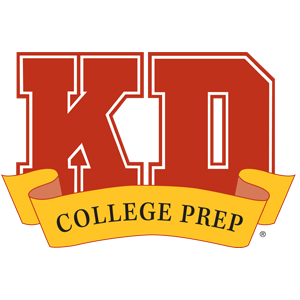It’s college application season, and high school seniors have a lot on their plates. In addition to juggling school work, extracurriculars, and a part-time job, the college-bound 12th grader now has to find time to apply for college on top of it all.
This is a busy time in your life, and one small misstep could result in a rejection letter. While your college admission will depend on a variety of factors, there are a few common mistakes you can avoid to maximize your odds of acceptance.
Based on 28 years of experience helping students through the college admission process and advice from our college counselors, we’ve put together a list of 20 college application mistakes to avoid.
20 Common College Application Mistakes to Avoid
1. Forgetting to research the college early on
The college research process should begin as early as freshman year of high school. While you may not know exactly where you plan to attend at that point, you should still look up the admission requirements for some of your top picks.
We say this because your high school courses and grades have a heavy impact on how college admissions officers view your application. If your grades do not meet the standard, you likely will be rejected on the first round of review.
2. Blending in instead of standing out
While attending college is common these days, getting admitted to a highly competitive college is not. The top schools only accept the best and most interesting applicants, so a common high school experience often isn’t enough.
Throughout your high school years, sign up for activities that will expand your experience and help you stand out on your applications. Activities like college camps, internships, starting your own non-profit, sports, and volunteering can help enrich your experience and add depth to your college applications and essays.
3. Aiming too low on test scores
As a baseline, your test scores should at a minimum match the average test scores for students who attend the schools to which you apply. For example, the average SAT® test scores for Columbia University are in the 1450-1580 range for its current student body. So at the minimum, you’d want to aim for a 1450 score in order to maximize your chances of acceptance.
However, test scores are not the only factor that colleges will consider. Many elite colleges report that they reject a number of perfect test scores every year. You’ll want more than just a great test score if you want to attend a highly competitive college.
Some schools have also moved to “test optional” in 2020. At these schools, test scores are often still needed to determine eligibility for areas such as scholarships, competitive degree programs, and honors college placement. However, it is possible to get accepted to a test optional college without submitting a test score.
4. Not putting enough effort into grades
Test scores are important, but so are your grades. An excellent test score but a mediocre GPA can sometimes result in a rejection letter from an elite college.
Keep in mind that colleges will look deeper than just your high school GPA. If you had a high GPA but took mostly easy classes, the admissions officer will notice. If you received a B or a C in an AP calculus class, please note that the difficulty of the course will be taken in consideration when reviewing your application.
5. Selecting the wrong high school courses
Did you know that Ivy League colleges often require that a student take the most difficult high school courses available?
Colleges understand that each high school has different offerings, and they will take that into account. But if you plan to go to an elite college, you should fill your schedule with challenging coursework like AP and honors classes.
Keep in mind that the course requirements differ from major to major. If you plan to major in engineering, your coursework should reflect that you took a good number of STEM courses to prepare for college. If you plan on majoring in journalism, your transcript should show you received good grades in English classes. Colleges will want to see demonstrated expertise in coursework related to your chosen major.
6. Lack of involvement in extracurriculars
One common mistake that some students make is they spend so much time focusing on academics that they never get involved in extracurricular activities.
Colleges look for well-rounded students who have a wide range of experiences. Participating in extracurricular activities like sports and student organizations will help challenge you, expand your horizons, and teach you how to socialize with others.
Extracurriculars will come in handy when creating your college resume or applying for scholarships. Remember, colleges like to see that you stuck with your commitments rather than that you joined every club possible. Select a few extracurriculars to join and try to stay involved in them through all four years of high school if your schedule allows.
7. Picking an unoriginal essay topic
Essays are an important component of your college applications because they allow the college to get to know you in a way that is not shown in the other aspects of your application.
Choose your essay topic wisely. Try to tell your story in a unique and impactful way. Remember that some stories that may have felt life-changing to you probably happened to several other students as well.
Avoid writing about common essay topics like:
- Death of a Family Member
- Your Parent’s Divorce
- The Big Game
If you are still keen on writing about one of these topics, think deeply about how you might tell the story in an interesting way. Sometimes students start with a generic topic and discover a way to put a new spin on it, resulting in a unique essay overall.
Sometimes it helps to receive input from a college counselor when brainstorming potential essay topics. Find out how we can help with college application essays.
8. Risky content in essays
Your essay should not read like a teenage soap opera. You don’t want colleges to think that you’ll just be there for the party.
Illegal activities and intimate details about romantic relationships shouldn’t have a role in your college application essay.
For more advice on what to write about and what to avoid, read “How to Write a College Application Essay.”
9. Coming off as arrogant in essays
Sometimes students make the mistake of thinking they need to sell themselves in order to get into that dream school. As a result, they make statements like “I was the best” or forget to give credit to others who helped them along the way.
While your application should showcase how awesome you are, you shouldn’t come right out and say it in your essay. Instead, leave it up to the admissions officer to recognize your potential.
10. Relying too much on the thesaurus
Your essays should show your personality, and you should write them using your own voice. You still want to be eloquent, but try to choose your vocabulary naturally. If you go in and replace several words using a thesaurus, you may lose clarity and your voice along the way.
11. Receiving generic letters of recommendation
Many students make the mistake of waiting until senior year of high school to start thinking about letters of recommendation.
It can take years to cultivate a meaningful relationship with a teacher that will result in an outstanding letter of recommendation. We recommend that students start trying to identify 2-3 teachers as soon as sophomore year of high school. Pay attention to the teachers that compliment you or comment on how much you’ve improved.
Before asking for a letter of recommendation, ask yourself the following questions:
- Will he or she remember me?
- Did I establish a meaningful relationship with this person?
- Do I think he or she is capable of writing a compelling letter of recommendation?
- What are some memorable moments I had with this person?
You should ask for a letter of recommendation in your spring semester of junior year at the latest. Remember, you’re not the only student applying to college in your class, so remember to ask early. Some teachers will limit the number of letters of recommendation they are willing to write in a given year.
It also helps to include some context when requesting a letter of recommendation. Remind the teacher which class you had with them or bring up a memorable moment to help jog his or her memory of you.
12. Forgetting to show why you belong
College admissions officers are looking for students who will fit in at their schools. Demonstrate interest in the school by visiting campus or sharing why you belong in your essays or during college interviews.
13. Taking the cookie-cutter approach
When answering the “Why this college” essay prompt, don’t write a generic essay where you switch out the university names for each application. This is lazy and leaves room for error. If you can swap out university names and the essay still reads the same, it’s probably not a memorable essay.
Remember to do your research and be able to distinguish one school from another. It’d be pretty embarrassing to accidentally tell the University of Texas at Austin that you can’t wait to become an Aggie.
14. Only applying to reach schools
Sometimes, a student will choose to only apply to reach schools and end up with nothing but a pile of rejection letters and a heart full of doubt.
Keep in mind that Harvard University only accepted 4.5% of the 43,330 applicants that applied in 2019. Valedictorians and students with perfect SAT® and ACT® test scores were among the vast majority of applicants that this elite college rejected.
Even with a seemingly perfect college application, there is a chance that some of the schools to which you apply will reject you. It’s pretty rare that a student gets into every college on the list.
For this reason, we recommend that students create a balanced college list to ensure the best results. You may not get into your top choice school, but you may get into multiple schools you could picture yourself attending.
15. Forgetting to submit test scores or transcript
With COVID-19 affecting whether or not students took the SAT or ACT tests this year, there have been several changes to the college admissions process. Some schools have moved to test optional, meaning students do not have to submit scores as part of their application.
However, many families are discovering that “test optional” colleges will still consider test scores when reviewing applications. This means a test score can still help a student get accepted, especially for the more selective aspects of the process such as scholarships, acceptance to competitive degree programs, honors college placement, etc.
It’s a confusing time for the college-bound senior, so we recommend reading the college admissions guidelines carefully. Make sure you follow directions and submit every piece of the application possible. This means that if a test score is optional and you have a good SAT score that could help your odds of acceptance, you should submit your score.
Don’t forget to ask your high school to send your transcript to the colleges to which you apply. Your high school counselor will have specific instructions on how to do this at your school.
16. Forgetting to apply for scholarships or fill out the FAFSA®
For many students, getting in is only half the battle. After receiving that acceptance letter, you then have to figure out how you will afford the cost of college.
Scholarships and financial aid can bring down the cost of college drastically, and some KD students obtain merit-based scholarships that cover their tuition entirely. This requires additional steps to apply and qualify for scholarships.
We also recommend that every student fill out the FAFSA, regardless of your family’s financial situation. Several factors are considered when evaluating financial need, and you may be surprised to find that you qualify for a grant or work study program.
17. Inappropriate content on social media
Did you know that college admissions officers may look at your social media profiles during the admissions process? Remember this when choosing what to post on your social profiles.
Not all college admissions officers include this in their process, and those that do usually do this to find a tie-breaker between you and another highly qualified candidate. You don’t want to lose that battle because you posted an illegal activity, hate speech, or something else inappropriate from their point of view.
Also keep in mind that colleges require students to adhere to a code of conduct. Even after your admittance, a college may penalize you if something on your social media profiles shows you breaking the rules. Bottom line: keep your social media profiles squeaky clean!
18. Too much parent involvement
You love your parents, and they just want the best for you. But if your mom or dad rewrites your college essays for you, then it’s probably time to set some boundaries.
The truth is college admissions has changed since your parents were teens. What worked for them may not work for you.
Also be mindful that admissions officers are pros at reading college essays. They will be able to tell if mom or dad wrote it.
19. Lying or exaggerating about your experience
This one’s probably a no brainer, but some students will go to great lengths to attend their dream college. Do not submit false information on your college application. Nine times out of 10, the admissions officer will see through your bluff, and it will result in an immediate rejection.
There are also legal repercussions for lying or cheating your way through the college admissions process. Recently, some celebrities have been sentenced to jail time for taking an unethical approach to getting their teens accepted to competitive colleges.
Admissions officers read college applications for a living, so it’s also easy for them to see through the fluff. Exaggerating your involvement in an extracurricular or volunteer opportunity, while less serious of a mistake than lying, can also result in a move to the rejection pile.
When it comes to college applications, honesty really is the best policy.
20. Waiting until the last minute
A well-rounded applicant is an organized person who plans ahead. So if you’re trying to communicate that you are a well-rounded, responsible applicant, do not submit your application at 11:59 p.m. on the night that it is due.
If you wait until the last minute, you’ll be rushing to get everything done on time. This results in sloppy essays and room for error when filling out the application.
Plan ahead on your college applications. We offer APPLY NOW! Boot Camps to give students a head start on their college applications. During these small group sessions, students work with our college counseling team to develop two edited essays, the Common App® and ApplyTexas® application, an edited resume, and activity list.
Need more advice for applying to college?
Our experienced college counselors will guide you through every step of the college admissions process, from deciding your college list to making your final college decision. For more information, contact a campus near you.














































